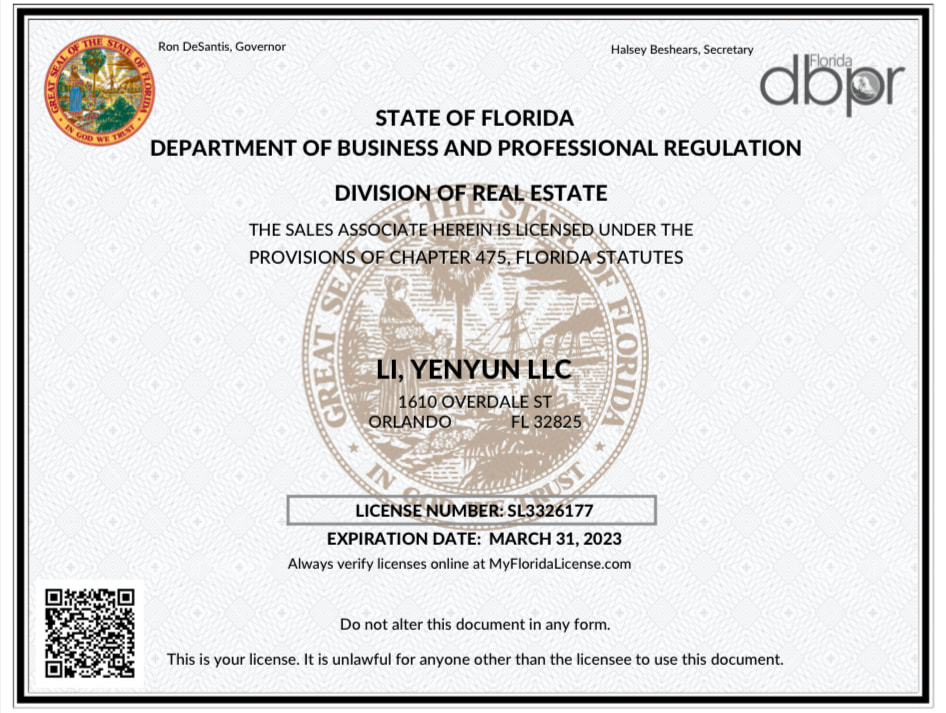
If you want to become a real estate agent in New York, there are many steps that you will need to take. The pre-licensing course must be completed, the exam must passed, and then you can apply for your license. Although the entire process can take a while, it is possible to become a licensed agent with just a little bit of effort.
How to get your New York Real Estate License
Find a broker who will sponsor you and help get you started. It is important to choose a local broker who has a solid reputation and is willing invest in your education. You will also need to find out what kind of commission structure they have for their agents and what kind of training they offer.
Next, enroll in the 75-hour required real estate sales agent course/RESB1CE9503. This is a fulltime program that takes eight weeks. You need to find a provider that offers both online or in-person classes.

After you have completed your courses and passed your exam, you must submit your application to the New York Department of State. Either mail or fill out the application online. The $65 application fee is non-refundable.
How to renew your New York Real Estate License
You must renew your real estate license every two years in order to continue working as a real estate broker or salesperson in the state of New York. This can all be done online via your eAccessNY account. You will receive instructions to complete the renewal application and to pay the renewal fees.
The New York Department of State will examine your application and send you a confirmation of acceptance. The New York Department of State will send you a letter and a card to confirm your status as a New York real estate agent.
What is an average annual income for a New York realty agent?
The average New York City real estate agent earns $111 734 per year as of the time this article was written. This is higher than the national average, and it is largely due to New York City's highly competitive real estate market.

How to be a New York real estate agent
It is easy and straightforward to become a licensed real-estate agent. You must pass the New York state exam and be sponsored by a licensed broker. Once you have obtained your realty license, you are eligible to sell apartments or homes in order to make a living selling them.
How to become a real-estate agent in NYC
Attending an accredited school of real estate is the best method to become a New York real estate agent. These schools offer extensive courses that will prepare you to take New York's real estate exam.
Many real estate schools will provide all the information you need in order to become licensed agents. However, you may need additional study materials to help you pass the NY real estate exam. Some of the best resources for studying for the exam are Kaplan, which offers a variety of study materials to ensure you pass. RealEstateU is another study material provider that offers courses created by local experts. These courses can help you pass NY real estate exams. You can use their next generation student dashboard to track your progress and make sure you're ready for the NY real estate licensing exam.
FAQ
How do I calculate my interest rates?
Interest rates change daily based on market conditions. In the last week, the average interest rate was 4.39%. To calculate your interest rate, multiply the number of years you will be financing by the interest rate. For example, if $200,000 is borrowed over 20 years at 5%/year, the interest rate will be 0.05x20 1%. That's ten basis points.
What are the pros and cons of a fixed-rate loan?
A fixed-rate mortgage locks in your interest rate for the term of the loan. This means that you won't have to worry about rising rates. Fixed-rate loan payments have lower interest rates because they are fixed for a certain term.
Do I need flood insurance
Flood Insurance protects from flood-related damage. Flood insurance protects your possessions and your mortgage payments. Find out more about flood insurance.
How much will it cost to replace windows
Replacement windows can cost anywhere from $1,500 to $3,000. The total cost of replacing all your windows is dependent on the type, size, and brand of windows that you choose.
Is it possible to get a second mortgage?
Yes, but it's advisable to consult a professional when deciding whether or not to obtain one. A second mortgage is usually used to consolidate existing debts and to finance home improvements.
Statistics
- Based on your credit scores and other financial details, your lender offers you a 3.5% interest rate on loan. (investopedia.com)
- Some experts hypothesize that rates will hit five percent by the second half of 2018, but there has been no official confirmation one way or the other. (fortunebuilders.com)
- This seems to be a more popular trend as the U.S. Census Bureau reports the homeownership rate was around 65% last year. (fortunebuilders.com)
- It's possible to get approved for an FHA loan with a credit score as low as 580 and a down payment of 3.5% or a credit score as low as 500 and a 10% down payment.5 Specialty mortgage loans are loans that don't fit into the conventional or FHA loan categories. (investopedia.com)
- Over the past year, mortgage rates have hovered between 3.9 and 4.5 percent—a less significant increase. (fortunebuilders.com)
External Links
How To
How to Manage a Rental Property
Although renting your home is a great way of making extra money, there are many things you should consider before you make a decision. This article will help you decide whether you want to rent your house and provide tips for managing a rental property.
Here are some things you should know if you're thinking of renting your house.
-
What factors should I first consider? Take a look at your financial situation before you decide whether you want to rent your house. If you have outstanding debts like credit card bills or mortgage payment, you may find it difficult to pay someone else to stay in your home while that you're gone. It is also important to review your budget. If you don't have enough money for your monthly expenses (rental, utilities, and insurance), it may be worth looking into your options. It may not be worth it.
-
How much does it cost to rent my home? There are many factors that go into the calculation of how much you can charge to let your home. These factors include the location, size and condition of your home, as well as season. Prices vary depending on where you live so it's important that you don't expect the same rates everywhere. Rightmove has found that the average rent price for a London one-bedroom apartment is PS1,400 per mo. This means that if you rent out your entire home, you'd earn around PS2,800 a year. Although this is quite a high income, you can probably make a lot more if you rent out a smaller portion of your home.
-
Is this worth it? You should always take risks when doing something new. But, if it increases your income, why not try it? It is important to understand your rights and responsibilities before signing anything. Your home will be your own private sanctuary. However, renting your home means you won't have to spend as much time with your family. These are important issues to consider before you sign up.
-
What are the benefits? Now that you have an idea of the cost to rent your home, and are confident it is worth it, it is time to consider the benefits. Renting out your home can be used for many reasons. You could pay off your debts, save money for the future, take a vacation, or just enjoy a break from everyday life. You will likely find it more enjoyable than working every day. And if you plan ahead, you could even turn to rent into a full-time job.
-
How do I find tenants? Once you've decided that you want to rent out, you'll need to advertise your property properly. Start by listing online using websites like Zoopla and Rightmove. You will need to interview potential tenants once they contact you. This will help you evaluate their suitability as well as ensure that they are financially secure enough to live in your home.
-
What can I do to make sure my home is protected? If you don't want to leave your home empty, make sure that you have insurance against fire, theft and damage. You will need to insure the home through your landlord, or directly with an insurer. Your landlord will likely require you to add them on as additional insured. This is to ensure that your property is covered for any damages you cause. This doesn't apply to if you live abroad or if the landlord isn’t registered with UK insurances. In this case, you'll need to register with an international insurer.
-
Even if your job is outside the home, you might feel you cannot afford to spend too much time looking for tenants. Your property should be advertised with professionalism. Post ads online and create a professional-looking site. It is also necessary to create a complete application form and give references. Some people prefer to do everything themselves while others hire agents who will take care of all the details. Interviews will require you to be prepared for any questions.
-
What should I do after I have found my tenant? If you have a lease in place, you'll need to inform your tenant of changes, such as moving dates. Otherwise, you can negotiate the length of stay, deposit, and other details. It's important to remember that while you may get paid once the tenancy is complete, you still need to pay for things like utilities, so don't forget to factor this into your budget.
-
How do you collect the rent? You will need to verify that your tenant has actually paid the rent when it comes time to collect it. If they haven't, remind them. After sending them a final statement, you can deduct any outstanding rent payments. If you're struggling to get hold of your tenant, you can always call the police. They will not usually evict someone unless they have a breached the contract. But, they can issue a warrant if necessary.
-
How do I avoid problems? You can rent your home out for a good income, but you need to ensure that you are safe. Make sure you have carbon monoxide detectors installed and security cameras installed. It is important to check that your neighbors allow you leave your property unlocked at nights and that you have sufficient insurance. You should never allow strangers into your home, no matter how they claim to be moving in.